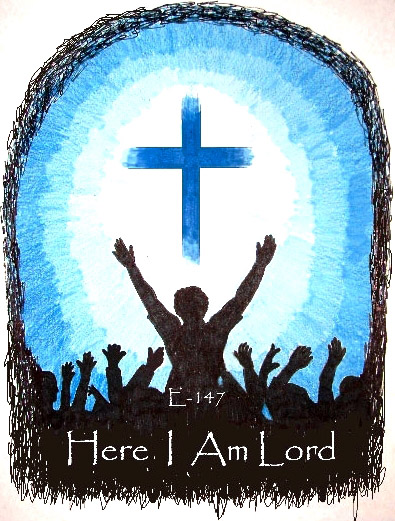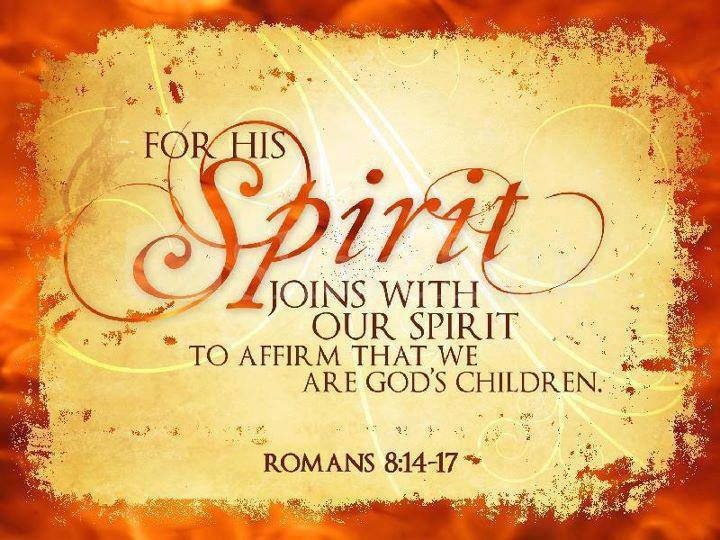Notes on the Notes – May 15, 2016

This week’s theme: Pentecost
Baptism/Confirmation Sunday
This week’s scripture readings:
Acts 2: 1-8, 11b-15, 36-41
Romans 8: 14-17
This week’s music:
“Oh, a Song Must Rise” (MV #142)
“Oh, a song must rise for the spirit to descend
Oh, a song must rise once again
Singing out God’s praises and glory, the faithful voices blend,
Oh a song must rise for the spirit to descend.
From the mountains to the valleys, from the desert to the sea,
A song must rise once again.
From the voices of our leaders, the voice of you and me,
A song must rise for the spirit to descend.
From poverty and riches, from the voice of young and old,
A song must rise once again.
From the free and the imprisoned, the timid and the bold,
A song must rise for the spirit to descend.
From ev’ry house of worship, in ev’ry faith and tongue,
A song must rise once again.
From the villages and cities a new song must be sung,
A song must rise for the spirit to descend.”
The words and music for this lively song are by Paul B. Svenson (1995). The arrangement we will be using this week is by Bryn Nixon (2006) as it appears in More Voices.
See a teaching video of this song sung by choir and congregation at: https://youtu.be/Y4Q7XghWg-c
Read Jeff Doucette’s blog about music and faith at: http://jeffdoucette.webs.com/apps/blog/show/7336990
“I, the Lord of Sea and Sky” (VU #509)
“I, the Lord of sea and sky,
I have heard my people cry.
All who dwell in deepest sin my hand will save.
I who made the stars of night,
I will make their darkness bright.
Who will bear my light to them?
Whom shall I send?
Here I am, Lord. Is it I, Lord?
I have heard you calling in the night.
I will go, Lord, if you lead me.
I will hold your people in my heart.
I, the Lord of snow and rain,
I have borne my people’s pain.
I have wept for love of them;
They turn away.
I will break their hearts of stone, give them hearts for love alone.
I will speak my word to them.
Whom shall I send?
Here I am, Lord. Is it I, Lord?
I have heard you calling in the night.
I will go, Lord, if you lead me.
I will hold your people in my heart.
I, the Lord of wind and flame,
I will tend the poor and lame.
I well set a feast for them;
My hand will save.
Finest bread I will provide till their hearts be satisfied.
I will give my life to them.
Whom shall I send?
Here I am, Lord. Is it I, Lord?
I have heard you calling in the night.
I will go, Lord, if you lead me.
I will hold your people in my heart.”
“When The United Methodist Hymnal was published in 1989, one of the most popular hymns was immediately “Here I Am, Lord” (1981) by Daniel Schutte (b. 1947). The stirring refrain is perhaps the first part of the hymn to capture the singer’s imagination. In my experience teaching congregational song throughout the United States, I have found that many Protestants are unaware that this hymn represents Roman Catholic renewal music resulting from the Second Vatican Council (1962-1965)…
“Here I Am, Lord” recalls immediately Isaiah 6:8: “Then I heard the voice of the Lord saying, ‘Whom shall I send, and who will go for us?’ And I said, ‘Here am I; send me!’”
An unusual attribute of this hymn is the change in point of view that the singer makes between the stanzas and the refrain. The stanzas speak from the perspective of God in the first person singular, while the refrain, though remaining in first person, is from the perspective of the singers of the hymn offering their lives to God.
Each stanza reflects a paradox. The powerful God, creator of “sea and sky,” “snow and rain” and “wind and flame” is also the God who hears the “people cry,” bears the “people’s pain” and “tend[s] the poor and lame.”
This is a hymn of transformation. God transforms the darkness into light in stanza one, melts “hearts of stone” with love in stanza two and nourishes the “poor and lame” with the “finest bread”—a clear Eucharistic (communion) reference.
Each stanza ends with the question, “Whom shall I send?” Rhetorical questions are very common poetical devices in Christian hymnody, but this is not one of them. The refrain immediately offers the response, “Here I am, Lord.”…” (Source: http://www.umcdiscipleship.org/resources/history-of-hymns-here-i-am-lord)
Hear the song’s composer, Dan Schutte:
Hear an instrumental (piano/harp/flute) version of the song at: https://youtu.be/l1KtIw9xs6g
Hear Daniel O’Donnell at: https://www.youtube.com/watch?v=VyHTkGrLicg
“Take, O Take Me as I Am” (MV #85) sung blessing
“Take, O take me as I am;
Summon out what I shall be;
Set your seal upon my heart and live in me.”
This song of discernment is by John L. Bell and Graham Maule of the Iona community. It was written in 1995. We will be using it during the time of confirmation and baptism.
Hear an acapella version of the hymn at: https://youtu.be/kNBrRyIolsY
“I Have Called You by Your Name” (MV #161)
 This hymn has been described as a hymn for ordination, commitment, and commissioning by Daniel Charles Damon (1995). The lyrics have their root in Isaiah 43:1. This hymn is written from God’s perspective, saying “I have called you by your name, you are mine” and goes on to speak of God’s hope for us. It commissions us to have the courage to follow where God leads and reminds us of everyone’s innate value in God’s eyes.
This hymn has been described as a hymn for ordination, commitment, and commissioning by Daniel Charles Damon (1995). The lyrics have their root in Isaiah 43:1. This hymn is written from God’s perspective, saying “I have called you by your name, you are mine” and goes on to speak of God’s hope for us. It commissions us to have the courage to follow where God leads and reminds us of everyone’s innate value in God’s eyes.
“I have called you by your name, you are mine;
I have gifted you and ask you now to shine.
I will not abandon you; all my promises are true.
You are gifted, called, and chosen; you are mine.
I will help you learn my name as you go;
Read it written in my people, help them grow.
Pour the water in my name, speak the word your soul can claim,
Offer Jesus’ body given long ago.
I know you will need my touch as you go;
Feel it pulsing in creation’s ebb and flow.
Like the woman reaching out, choosing faith in spite of doubt,
Hold the hem of Jesus’ robe, then let it go.
I have given you a name, it is mine;
I have given you my Spirit as a sign.
With my wonder in your soul, make my wounded children whole;
Go and tell my precious people they are mine.”
“Follow the Way of the Lord”
Written in 2009, today’s anthem by Bert Stratton and Lloyd Larson brings us this inspiring call to discipleship:
“On each journey that you take, follow the way of the Lord.
In every single choice you make, follow the way of the Lord.
Climbing up the mountainside, or swimming hard against the strongest tide,
Christ is there to be your guide, follow the way of the Lord.
Through the vale where shadows fall, follow the way of the Lord.
Jesus answers when you call, follow the way of the Lord.
As the Saviour’s path unfolds come and walk the straight and narrow road.
Christ will lighten up your load, follow the way of the Lord.
Follow and pray; follow today; follow the way of the Lord.
Follow His grace, follow in faith; follow the way of the Lord.
In everything you say or do, follow the way of the Lord.
The Savior watches over you, follow the way of the Lord.
On that morning when you rise Christ will lead you home up to the skies,
All the way to paradise, follow the way of the Lord.
Will you decide no to follow Jesus?
No turning back, no turning back.…”
The anthem also quotes the song “I have decided to follow Jesus,” a Christian hymn originating from India. The lyrics are based on the last words of a man in Assam, north-east India, who along with his family was converted to Christianity in the middle of the 19th century through the efforts of a Welsh missionary. Called to renounce his faith by the village chief, the convert declared, “I have decided to follow Jesus.” In response to threats to his family, he continued, “Though no one joins me, still I will follow.” His wife was killed, and he was executed while singing, “The cross before me, the world behind me.” This display of faith is reported to have led to the conversion of the chief and others in the village. The formation of these words into a hymn is attributed to the Indian missionary Sadhu Sundar Singh.
Due to the lyrics’ explicit focus on the believer’s own commitment, the hymn is cited as a prime example of decision theology, emphasizing the human response rather than the action of God in giving faith.
“Open My Eyes” (VU #371)
“Open my eyes, that I may see glimpses of truth thou hast for me;
place in my hand the wonderful key that shall unclasp and set me free.
Silently now I wait for thee, ready, my God, thy will to see.
Open my eyes, illumine me, Spirit Divine!
Open my ears, that I may hear voices of truth thou sendest clear;
and while the wave-notes fall on my ear, everything false will disappear.
Silently now I wait for thee, ready, my God, thy will to see.
Open my ears, illumine me, Spirit Divine!
Open my mouth, and let me bear gladly the warm truth everywhere;
open my heart and let me prepare love with thy children thus to share.
Silently now I wait for thee, ready, my God, thy will to see.
Open my heart, illumine me, Spirit divine!”
Clara H. Scott (1841-1897) provides us with a hymn of consecration that has been sung for over 100 years. A Midwesterner, she was born in Illinois and died in Iowa.
In 1856, Scott attended the first Music Institute held by C.M. Cady in Chicago, Ill. By 1859, she was teaching music at the Ladies’ Seminary, Lyons, Iowa. She married Henry Clay Scott in 1861, and published in 1882 the Royal Anthem Book, the first volume of choir anthems published by a woman.
Horatio R. Palmer, an influential church musician in Chicago and later New York City, was a source of encouragement for Scott, and helped her publish many of her songs. Three collections were issued before her untimely death, when a runaway horse caused a buggy accident in Dubuque, Iowa.
The text of “Open My Eyes” was written in 1895 shortly before Scott’s death. Each stanza reveals an increasing receptiveness to the “Spirit divine.” Open eyes lead to “glimpses of truth.” Open ears lead to “voices of truth.” An open mouth leads to sharing the “warm truth everywhere.” An open heart leads to sharing “love to thy children.”
The image of open eyes is common in the Bible. In some cases, this is a sign of Christ’s healing power, as when Jesus gave sight to the blind man at the pool of Siloam in John 9. Closed eyes, on the other hand, could be a metaphor for avoiding the truth as in the case of John 12:40, a passage following the triumphal entry of Christ into Jerusalem and beginning his journey to the cross: “He hath blinded their eyes, and hardened their heart; that they should not see with their eyes, nor understand with their heart, and be converted, and I should heal them.”
The image of open ears is also significant in the biblical witness. Matthew often reprises the theme “Who hath ears to hear, let him hear.” Closed ears become a metaphor for a lack of understanding. While the eyes and the ears are receptive organs, the mouth has the capacity to project. The mouth may project “cursing and deceit and fraud” (Psalm 10:7), or it may be an organ that projects praise, as Psalm 51:15 exhorts us: “O Lord, open thou my lips; and my mouth shall show forth thy praise.”
Sing along with the choir at First United Methodist Church in Valdosta, Georgia at: https://youtu.be/71jExPuxRBY
“We will take what you offer” (MV #196)
“We will take what you offer, we will live by your word;
We will love one another and be fed by you, Lord.”
Our benediction response this week will be this response by John L. Bell, written in 1998.
Categories: Notes on the Notes




You must be logged in to post a comment.